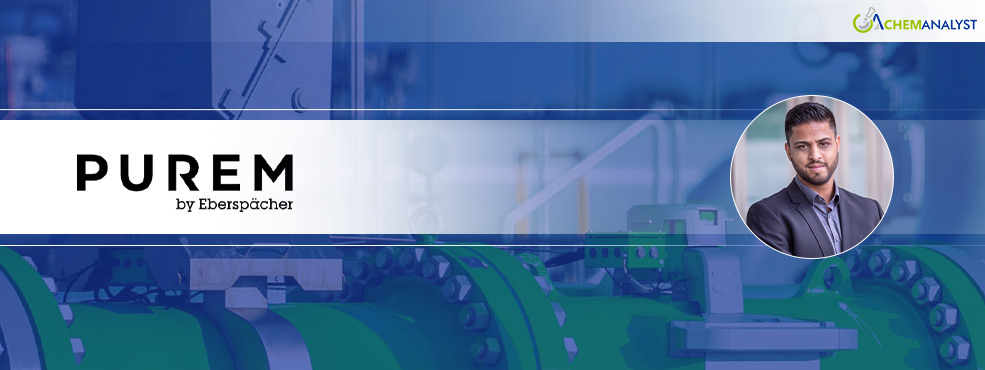Welcome To ChemAnalyst

Efforts to decarbonize heavy-duty and off-road machinery have gained significant momentum, particularly with the launch of the “PoWer” project, a collaborative initiative spearheaded by Purem by Eberspaecher in partnership with leading manufacturers and academic institutions in Germany. Backed by the Federal Ministry for Economic Affairs and Climate Protection, the project aims to explore and develop hydrogen-powered engines tailored for the construction and agricultural industries, as reported by several medias. Hydrogen engines have garnered attention for their efficiency and their ability to reduce untreated emissions, making them an ideal fit for non-road mobile machinery, which includes vehicles and equipment used in sectors like construction, mining, and agriculture.
Avinash Mutharja, Executive Vice President of Technology & Innovation at Purem by Eberspaecher, highlighted the significant opportunity hydrogen engines offer for clean mobility in heavy-duty applications. "We see the use of hydrogen engines as a great opportunity for clean mobility, particularly in off-road sectors," Mutharja said. "With decades of experience in exhaust technology, we have also been pioneering research in hydrogen technology for several years." This combination of expertise in emission control systems and ongoing research into hydrogen solutions places Purem by Eberspaecher in a strong position to contribute to the development of sustainable alternatives for heavy-duty machinery.
The consortium behind the “PoWer” project includes some of the most prominent players in the industry, along with leading research institutions. Key members include MAHLE, DEUTZ, Claas, Liebherr, Nagel, Umicore, Castrol, NGK, and several academic bodies such as the Karlsruhe Institute of Technology (KIT), the German Aerospace Center (DLR), and the Technical University of Braunschweig. Together, these partners will collaborate on a range of activities, including vehicle concept studies, fleet evaluations, and assessments of the infrastructure needed to support hydrogen-powered machinery in off-road applications. This comprehensive approach is designed to advance the technical feasibility and practical implementation of hydrogen engines in construction, farming, and other off-road sectors.
A primary area of focus for Purem by Eberspaecher within the project is examining the impact of hydrogen on the materials used in engines, especially in terms of friction and wear characteristics. Additionally, the company is working on developing exhaust gas aftertreatment systems that will be necessary to meet stringent future emissions standards, such as Euro 7 and Stage VI, which are expected to be introduced in the coming years. These systems will be crucial in ensuring that hydrogen engines remain viable and efficient in reducing overall emissions.
In terms of financial backing, the German government has committed €2.8 billion ($2.9 billion) to support up to five hydrogen-based decarbonization projects, which will help bridge the cost gap between hydrogen and traditional fossil fuels. This funding is part of Germany’s broader initiative to develop a national hydrogen infrastructure, with a total of €24 billion ($25.3 billion) dedicated to this cause. Germany’s National Hydrogen Strategy includes ambitious targets, such as the installation of 10 gigawatts of domestic electrolysis capacity for green hydrogen production—doubling the original target of 5 gigawatts. Furthermore, the strategy outlines plans to develop a hydrogen transport network that will span more than 1,800 kilometers by 2028, laying the foundation for a sustainable hydrogen economy. To support these initiatives, the German government has allocated €9 billion ($9.5 billion) towards hydrogen projects, with €7 billion ($7.4 billion) allocated for domestic developments and €2 billion ($2.1 billion) dedicated to international collaborations.
These government-backed efforts align with the growing global push to decarbonize industries and transition to cleaner energy sources. Through projects like the “PoWer” initiative, Germany is positioning itself as a leader in hydrogen technology, while supporting its industrial sectors in making the transition to more sustainable and environmentally friendly technologies. This effort is a critical step towards reducing carbon emissions across various industries, particularly in the heavy-duty and off-road machinery sectors, where hydrogen engines could play a pivotal role in achieving climate goals.
We use cookies to deliver the best possible experience on our website. To learn more, visit our Privacy Policy. By continuing to use this site or by closing this box, you consent to our use of cookies. More info.
